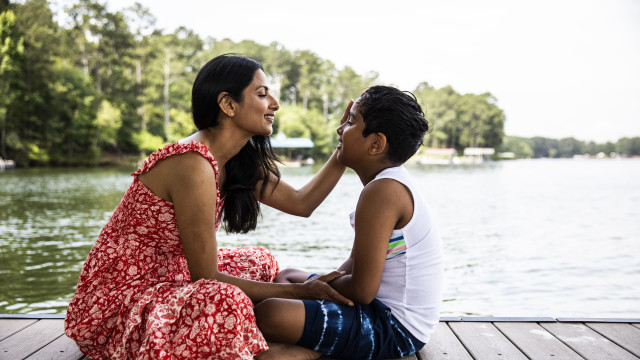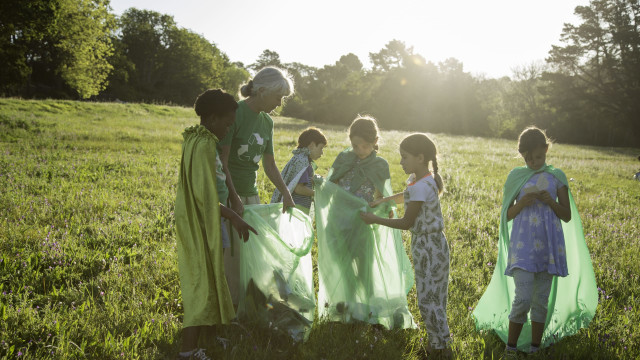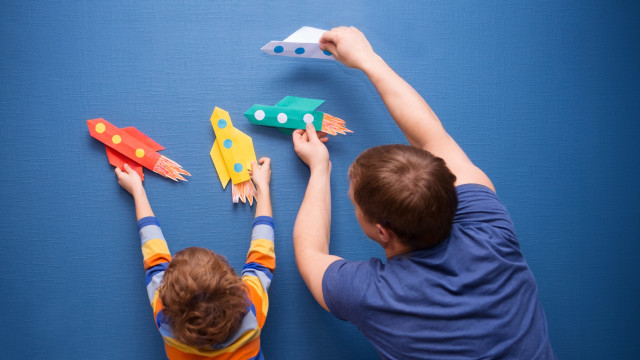Why Your Child Needs Mindfulness

Kids make childhood seem effortless. Watching a baby grow up to be a restive toddler or an active, talkative child become a moody, quiet teenager when adolescence hits are all part of the beautiful spectrum of childhood. While we often look back at these phases from our own lives through the rose-tinted glasses of nostalgia, we also know too well that there’s a distinct line between adulting issues and mental health problems.
Being a child today is no piece of cake. Kids are under a huge amount of pressure to perform well at school, look and do “cool” things, and be in the “right” friend circles. Social media only adds to this pressure of matching up with their peers.
It comes as no surprise then, that stress is on the rise among children. ADHD, anxiety, behavioural problems, and depression are the most commonly diagnosed mental health disorders in children, according to the most recent data and statistics report on children’s health from the Centers for Disease Control and Prevention.
We need to pay as much attention to children’s mental health and wellbeing as we do to adults’ issues — childhood trauma and neglect can leave long-lasting negative impressions on adult lives. And while an adult may be able to identify their problems and reach out for help, a child struggles to name their feelings and fears. How, then, can we help our children feel better and reduce their stress and anxiety?
The Parent Trap
Parents are not always able to figure out what their kids need, and that’s ok. We all want to be good parents, but trying to manage work deadlines, relationships, daily chores, and being a “happy” parent all at the same time seems impossible. Being a parent is thought to be one of the toughest (and most rewarding) jobs on the planet. In a 2021 survey from the American Psychological Association, nearly half of modern parents (48%) surveyed said their level of stress had increased in recent years.
Mindful parenting helps create space to open a parent’s eyes to their thoughts and actions during challenging moments. Practicing mindfulness through meditation and other exercises has proven to be effective at reducing stress. For parents, a collection of studies and trials continue to support this thinking.
Being mindful can help parents go beyond valuing book-smart academic intelligence in their kids and open their minds to help them develop emotional intelligence. Parents also need to teach their kids how to articulate their feelings or communicate their fears in ways that are rational and productive.
M for Meditation
Children with anxiety — and even those without — worry about making friends and impressing their teachers. Staying calm and being self-aware can help them be more confident in their own skin. This is possible through meditation and mindfulness. Teach them how to pause and take a deep breath when things get overwhelming; it’ll help them realign their emotions to the present moment and be less reactive to difficult situations.
By being mindful, they can also learn to focus their attention, practice self-control, and manage difficult emotions. “Meditation and mindfulness practices can improve and build on children’s existing strengths,” says Christopher Willard, clinical psychologist and author of Child's Mind: Mindfulness Practices to Help Our Children Be More Focused, Calm, and Relaxed.
To open the doorway to mindfulness for your kids, we must start listening to our children, and notice what they need. Here’s how you can introduce meditation and mindfulness to kids:
Teach Them the Power of Breath
How we breathe matters. Children, like adults, can benefit from mindful breathing practices, especially those they can engage with. Introduce young kids to rest their attention on the breath flowing in and out. Parents can try teaching kids “7-11 breathing” — breathe in, counting to 7, and out, counting to 11; repeating this for three breath cycles. This exercise can help both adults and kids calm their minds and be in the moment when they start to feel overwhelmed or anxious.
Practice Mindful Eating as a Family
Teaching mindful eating to kids is a great way to introduce them to mindfulness. Children are naturally curious, and being mindful together as a family at the dinner table and asking a child about the food they are eating — simple questions like “How would you describe the taste?” “Do you taste lemon?” — will make them interested in their food and enable them to savour their meals. Teaching kids where the origin of their food — where it’s grown, produced, and sourced from — is another way to help them learn to appreciate the meal on their plate and teach them to be grateful.
Take A Mindful Moment Before Bedtime
Sleep time is a suitable time to practice meditation. This 4-2-6 breath meditation can help children wind down after a busy day, let go of all that worries them, and ready them for a night of restful sleep. This will help them improve sleep and reduce their stress and anxiety.
Set an Example
Children learn from what they see. If you practice mindfulness, your child will follow. Make sure your children get the best gift you can give: your attention. Don’t take your phone with you when you spend a mindful moment with your kids — they can sense it when you are distracted. You must set an example of living in the now.
Mindfulness is nurtured over time, through regular exercise, just like any other healthy habit. And it will them live a life of Wholistic Wellbeing and build meaningful relationships.





